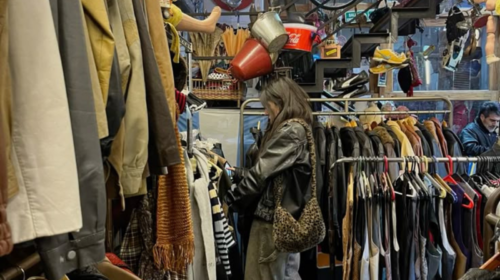Reducing Border Fentanyl Flow Won’t Curb Opioid Crisis, Expert Says

Trump wants to solve the opioid epidemic by keeping Fentanyl from crossing borders. But an addictions specialist says that’s the wrong tool for the problem.
Dr. Holly Sawyer (PhD, MS, LPC, CAADC, NCC), an Alcoholism and Substance Abuse Counselor, says, “There are so many ways drugs can come into this country. People will find a way to reproduce and get Fentanyl.” Even if border measures slow the flow of Fentanyl across the border, she believes, “There will be another drug that will pop up to be the new hot drug. Fentanyl has become really big in the last ten or so years because of the opioid epidemic. But it’s always been around. Every drug has had its time to be popular in this country.”
Even if we had a magic wand to stop the flow of Fentanyl, the addiction problem in the U.S. is much bigger than stopping the flow of one specific type of drug.
“People with a substance abuse disorder, 9 times out of 10 also have another mental health disorder like PTSD, depression, schizophrenia, or bipolar. So if Fentanyl magically disappears overnight, people will still find a way to get a different opioid or synthetic opioid. Because getting treatment [for addiction] in this country can be a barrier.”
If someone has a substance abuse disorder and isn’t ready to seek help, even if getting access to fentanyl is more difficult, they’ll find something else. Dr. Holly says the area where she lives in Philadelphia is a Fentanyl capital. “If I go to Kensington and remove 10 drug dealers off of a few blocks, there’ll be 10 more that pop up the next day.”
For people with substance abuse disorders, Dr. Holly says, “It’s very hard to get proper treatment and care. They need to come to the realization that they have a problem and then take steps to get help. And there’s so many barriers to getting help.”
Mental health and addiction centers are lacking funding and resources. Even if someone makes the very difficult step to go to a treatment facility, they may be screened for a different disorder, which would require them to go to a different clinic. Dr. Holly says it’s unlikely they will make it to the referral. Many people with substance abuse disorders are from lower socio-economic backgrounds and dependent on government assistance, so they aren’t able to go to private clinics.
“A lot of our processes here could be streamlined, city to city, town to town, state to state. To put a tariff or close the border – the tool doesn’t fit the actual need – it’s like taking a hammer to fix someone’s toilet.”
Dr. Holly says that many people who get into treatment clinics have other mental and physical health challenges because they’ve not been taking care of themselves for so long. How does she wish the country would address something like the opioid epidemic and addiction?
“This is a country that makes a lot of money off of people’s sickness, not their wealth and health. Put money into community health centres and mental health centres and addiction centres to help treat people.”











